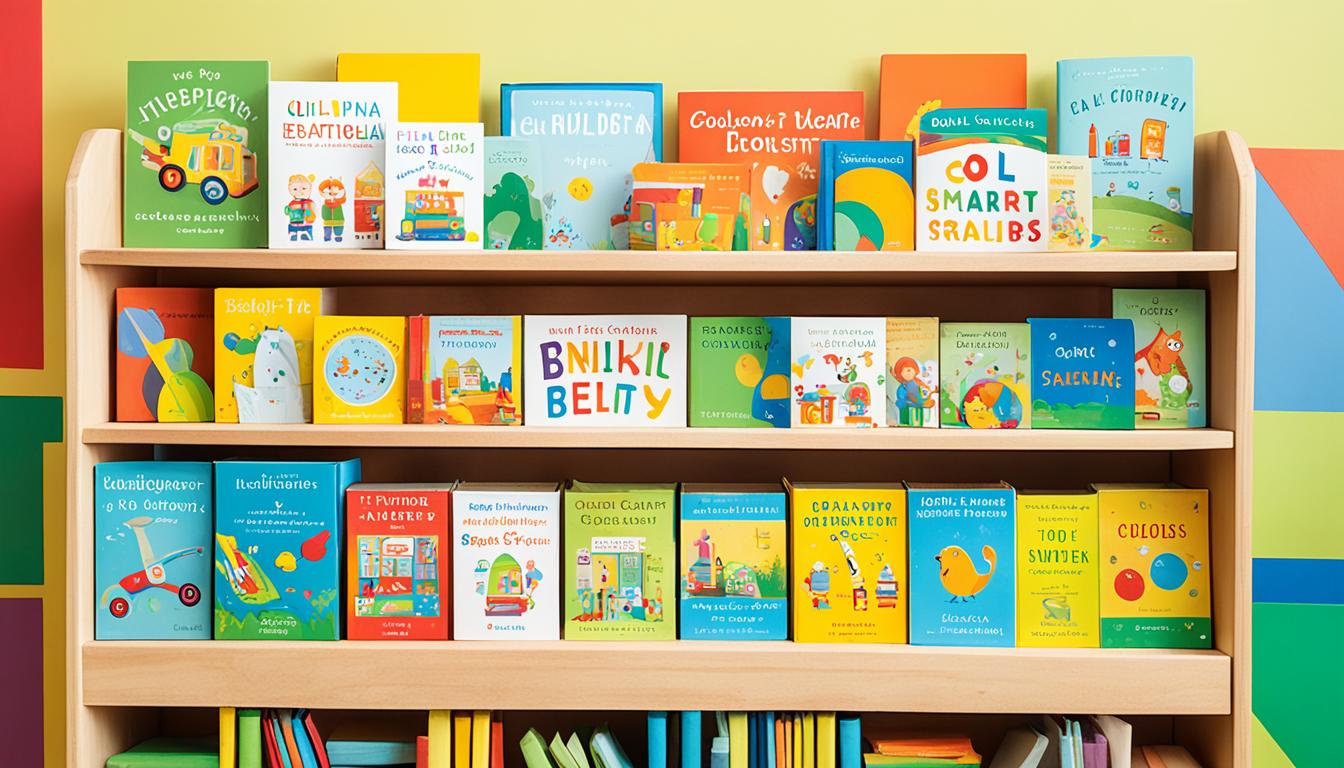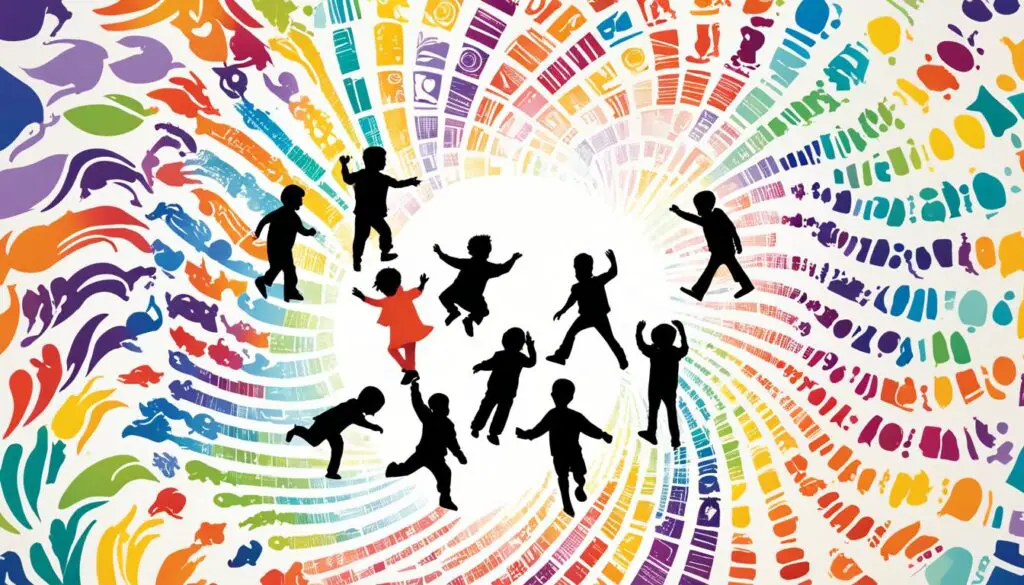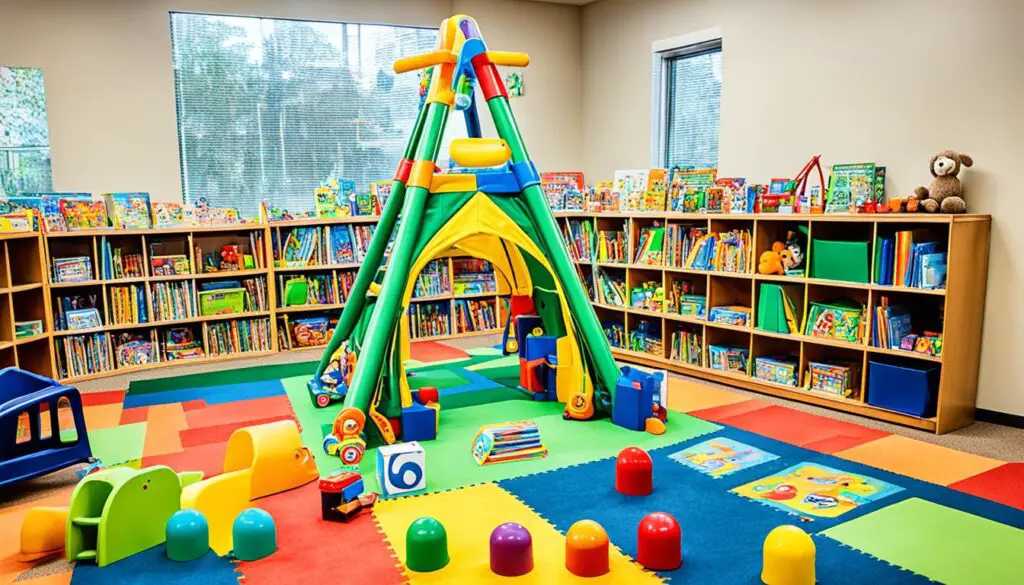
Top Child Development Resources for Educators and Parents
As an educator or parent, nurturing the development of young minds is a top priority. To support you in this important endeavor, I have curated a list of the top child development resources that can provide valuable insights, strategies, and activities to promote optimal growth and learning.
These resources are designed to empower you with the knowledge and tools needed to effectively engage and guide children through their developmental journey. Whether you are an educator in a classroom setting or a parent navigating the challenges of raising a child, these resources will equip you with the necessary guidance to unlock your child’s potential.
From understanding child development milestones to implementing effective strategies, these resources cover a wide range of topics to help you support and enhance your child’s growth. By familiarizing yourself with the milestones and employing proven strategies, you can create an environment that stimulates learning and facilitates healthy development.
Explore recommended websites, books, research studies, and professional organizations that specialize in child development. Connect with online communities and forums to exchange experiences and resources with other educators and parents who share the same goals.
Let’s embark on this journey together and discover the wealth of resources available for educators and parents to shape the future generation.
Key Takeaways:
- Curated resources to nurture child development
- Understanding child development milestones is crucial
- Effective strategies for promoting child development
- Explore recommended child development resources
- Connect with online communities for support and sharing
Understanding Child Development Milestones
It is essential for educators and parents to understand the different milestones in child development. These milestones indicate the typical skills and abilities that children should acquire at various stages of their development. By familiarizing themselves with these milestones, educators and parents can identify any areas that may need additional support or intervention.
Child development milestones encompass a wide range of areas, including cognitive, language, social-emotional, and motor skills. Each milestone represents an important step in a child’s growth and development, and they serve as a guide for monitoring progress and identifying any potential delays or challenges.
Let’s take a closer look at some key child development milestones:
- Gross Motor Skills: these milestones involve large muscle groups and physical movements such as crawling, walking, jumping, and running.
- Fine Motor Skills: these milestones involve precise movements of the small muscles, such as grasping objects, using utensils, writing, and drawing.
- Cognitive Skills: these milestones involve the development of thinking, problem-solving, and memory abilities, such as understanding cause and effect, imitating actions, and recognizing shapes and colors.
- Language Skills: these milestones encompass both receptive (understanding) and expressive (speaking) language abilities. They include babbling, saying first words, using simple sentences, and understanding basic instructions.
- Social-Emotional Skills: these milestones involve a child’s emotional development, ability to form relationships, self-awareness, and regulation of emotions.
Monitoring and assessing child development milestones can help educators and parents identify potential challenges early on, allowing for timely intervention and support. It is important to remember that every child develops at their own pace, and there is a wide range of variability within each milestone. However, if there are significant delays or concerns in multiple areas of development, it may be advisable to consult with a healthcare professional or developmental specialist.

Understanding child development milestones is a valuable tool for educators and parents to ensure that children are progressing as expected and receiving the necessary support for their individual growth and development. By identifying milestones and promoting age-appropriate activities, parents and educators can create an environment that fosters learning, exploration, and healthy development.
Strategies for Supporting Child Development
When it comes to promoting child development, educators and parents play a vital role. By implementing effective strategies, they can create an environment that fosters growth, learning, and overall well-being. Here are some strategies that have been proven to support child development:
- Create a stimulating environment: Providing a rich and diverse environment with age-appropriate toys, books, and activities helps stimulate a child’s curiosity, imagination, and cognitive abilities.
- Offer opportunities for play and exploration: Play is a crucial aspect of a child’s development. Encouraging unstructured play and exploration allows children to develop their creativity, problem-solving skills, and emotional intelligence.
- Encourage social interaction and communication: Promoting opportunities for children to engage with their peers and communicate effectively helps enhance their social skills, empathy, and language development.
- Foster independence and self-help skills: Allowing children to take on age-appropriate responsibilities and encouraging them to accomplish tasks independently nurtures their self-confidence, self-esteem, and sense of autonomy.
- Offer praise and positive reinforcement: Recognizing and praising a child’s efforts, achievements, and positive behavior helps build their self-esteem, motivation, and resilience.
By incorporating these strategies into their daily interactions and routines, educators and parents can create an environment that fully supports a child’s holistic development.
“Children are not things to be molded, but people to be unfolded.” – Jess Lair

With dedication, patience, and the implementation of these strategies, educators and parents can truly make a difference and positively impact a child’s development
Recommended Child Development Resources
Educators and parents seeking to enhance their understanding of child development and access valuable resources can explore a wide range of recommended sources. These sources include reputable websites, such as Child Development Institute and Zero to Three, which offer comprehensive information, research studies, and articles on child development topics. These websites serve as reliable hubs for educators and parents seeking evidence-based strategies and insights.
In addition to websites, there are numerous books available that provide in-depth knowledge on child development. Works by renowned experts like Jean Piaget, Lev Vygotsky, and Erik Erikson offer valuable perspectives and theories. Titles like “The Whole-Brain Child” by Daniel J. Siegel and Tina Payne Bryson and “The Power of Play” by David Elkind provide practical guidance for nurturing child development through play.
Professional organizations specializing in child development, such as the National Association for the Education of Young Children (NAEYC) and the American Academy of Pediatrics (AAP), also offer a wealth of resources. These organizations provide access to research papers, journals, and conferences, enabling educators and parents to stay informed about the latest advancements in the field.
Online communities and forums, such as the Early Childhood Education Network and Parenting.com’s Community, provide opportunities for educators and parents to connect, share experiences, and exchange resources. These platforms foster collaboration and provide a supportive network where individuals can seek advice and learn from others who share a passion for child development.
FAQ
How can understanding child development milestones benefit educators and parents?
Understanding child development milestones helps educators and parents identify areas that may need additional support or intervention.
What are some effective strategies for supporting child development?
Effective strategies for supporting child development include creating a stimulating environment, providing opportunities for play and exploration, encouraging social interaction and communication, fostering independence and self-help skills, and offering praise and positive reinforcement.
Where can educators and parents find recommended child development resources?
Educators and parents can explore reputable websites, books, research studies, and professional organizations specializing in child development. They can also join online communities and forums to connect and share experiences and resources.